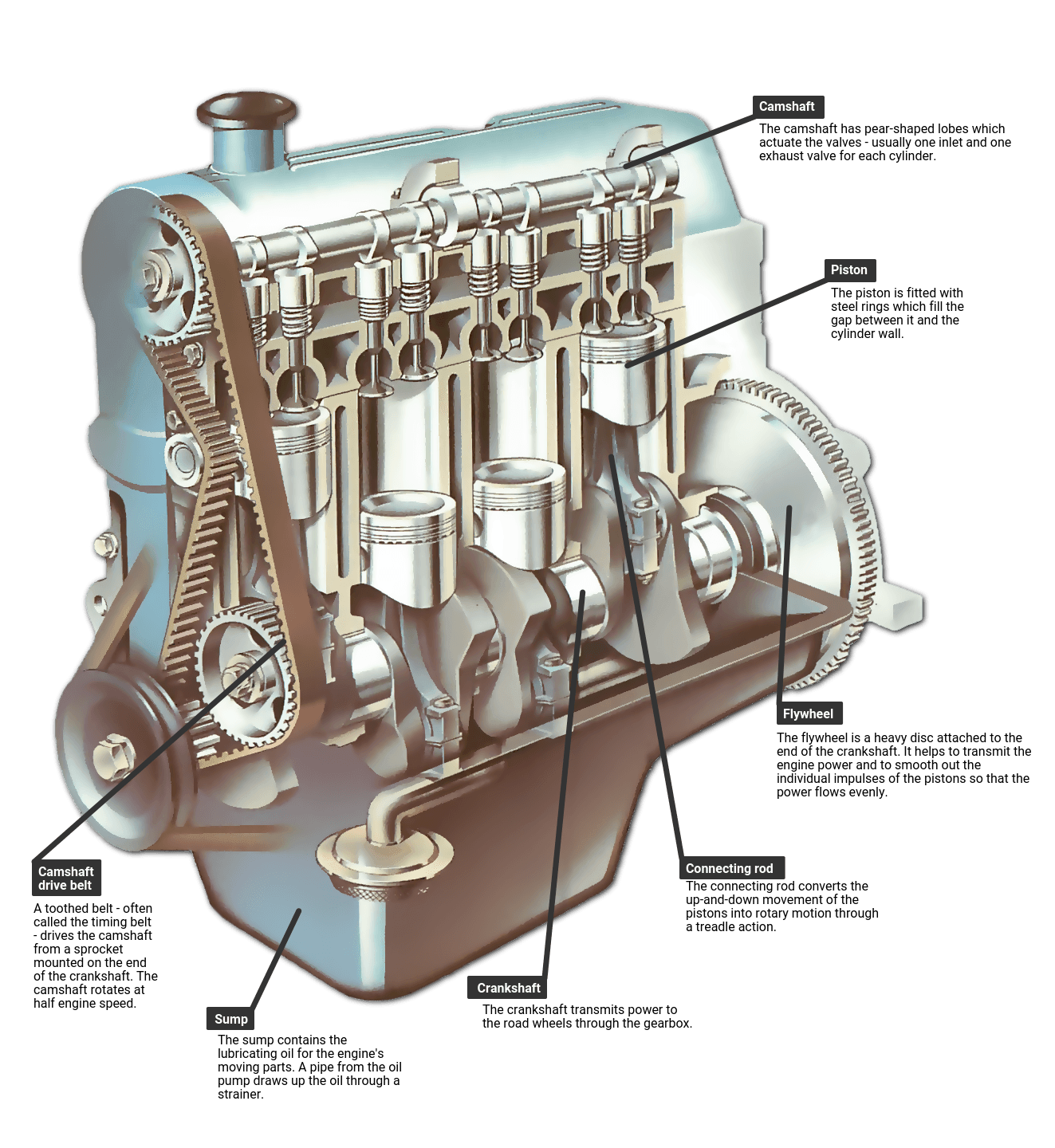Why Pick Engines For Africa for Reliable Motors
Why Pick Engines For Africa for Reliable Motors
Blog Article
A Total Overview to Selecting the Right Engine for Your Task
Selecting the appropriate engine for your job is a crucial decision that can substantially affect its overall success. It is important to meticulously define your project needs, evaluate performance needs, and think about user-friendliness along with various other crucial variables. In addition, understanding the neighborhood support available and inspecting price ramifications can even more refine your option. Each of these components plays an essential role in making certain that your chosen engine not only fulfills immediate purposes however likewise straightens with long-term ambitions. As we explore these considerations, you may find that the subtleties of each facet reveal more than originally expected.
Specify Your Job Requirements
Defining your task requires is a critical action in picking the suitable engine for successful implementation. An extensive understanding of your project's purposes will certainly direct you in identifying the capacities and features required from an engine. Begin by describing the extent of your job, consisting of the wanted functionality, target audience, and the certain results you intend to accomplish.
Next, consider the technical demands that straighten with your job objectives. This consists of examining the compatibility of the engine with existing systems, in addition to the shows languages and frameworks that will certainly be utilized. Furthermore, examine the degree of scalability called for to suit future development or adjustments sought after.
Spending plan constraints likewise play a vital duty in defining your job requires. Develop a clear monetary structure to direct your decision-making procedure, ensuring that the engine selected fits within your budget plan while giving the necessary functionality.
Evaluate Performance Needs

Next, consider the scalability of the engine. Analyze whether it can handle raised workloads as your project grows. Engines that sustain straight scaling are commonly more effective for bigger applications. In addition, examine the engine's performance under various problems, such as peak use scenarios, to ensure it fulfills your integrity criteria.
Consider Convenience of Use
While technological requirements are essential, the ease of usage of an engine can significantly impact the development process and general task success. An intuitive user interface, clear paperwork, and streamlined operations can substantially lower the learning contour for designers, enabling them to concentrate on creative thinking and analytic instead of grappling with complex tools.
When reviewing an engine's convenience of use, take into consideration the onboarding experience. A well-structured introduction, complete with tutorials and example jobs, can promote a smoother change for brand-new individuals. Additionally, the clearness and comprehensiveness of the engine's documentation play an important function; detailed overviews and API referrals can equip programmers to repair and execute features effectively.
Another facet to think about is the engine's modification capacities. An engine that enables simple modifications can be extra user-friendly, as designers can customize it to fit their details demands without extensive hassle. Last but not least, analyze the process integration with systems and tools you already use. A natural community can improve performance and minimize friction throughout the growth process. Eventually, choosing an engine that focuses on convenience of usage can bring about a much more enjoyable and effective growth experience.
Assess Area and Support
The toughness of an engine's community and support network can considerably influence a developer's experience and success. When assessing an engine, think about the dimension and activity degree of its community.
In addition, evaluate the accessibility of main support networks. Reputable paperwork, receptive consumer assistance, and regular updates are vital for dealing with technical concerns and keeping your job on course. Engines For Africa. Energetic areas also promote cooperation, providing opportunities for networking and comments, which can be indispensable, especially for independent developers or little teams
Furthermore, investigate the visibility of community-run occasions, such as meetups or hackathons. These gatherings can enhance your understanding of the engine while linking you with potential partners and seasoned users. In summary, a durable community and assistance system not only simplify advancement however likewise develop an atmosphere for discovering and development, eventually boosting the probability of your job's success.
Compare Cost and Licensing Choices
Budget factors to consider play an important function in choosing the right engine for your project, as the price and licensing options can dramatically impact both short-term costs and lasting viability. Engines For Africa. Different engines use varying rates structures, which can consist of one-time acquisition fees, registration designs, or revenue-sharing contracts based sites on your job's profits

Accrediting alternatives additionally differ substantially. Some engines are address open-source, supplying adaptability and community-driven support, while others might need proprietary licenses that limit usage and distribution. Recognizing the implications of each licensing version is vital, as it impacts ownership civil liberties, future scalability, and potential lawful obligations.
Conclusion
In final thought, choosing the ideal engine for a project requires a comprehensive examination of specified job requirements, efficiency demands, convenience of usage, community assistance, and cost considerations. By systematically resolving these critical aspects, decision-makers can make certain alignment with both future and present project demands. An educated choice ultimately boosts the chance of task success, making it possible for effective resource allocation and maximizing potential results within the specified budgetary restrictions.
Picking the suitable engine for your job is a critical choice that can dramatically impact its overall success.Defining your project requires is a critical step in selecting the ideal engine for effective application. A thorough understanding of your project's objectives will guide you in recognizing the features and abilities called for from an engine.Once you have a clear understanding of your task requires, the next action is to evaluate the efficiency needs of the engine.In final thought, picking the suitable engine for a project dig this demands an extensive examination of specified project demands, performance needs, ease of use, community support, and cost factors to consider.
Report this page